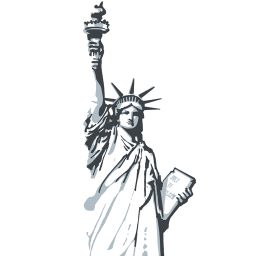Life, Liberty and the Pursuit of Happiness
The phrase “life, liberty and the pursuit of happiness” is at the heart of the Declaration of Independence. These words express the hopes of all people. The author of the Declaration of Independence recognized that these rights, so much a part of the basic nature of people, cannot be separated from them.
What Is a Right?
A right can be defined as a power or privilege which correctly belongs to one by law, nature or tradition. The American colonists felt that the King of Great Britain ignored their rights to life, liberty and the pursuit of happiness. They believed that government needed to secure those rights—not to deny them. Our study of the Declaration of Independence can lead the way to reading the Constitution.
The Right to Life
The first right, “life,” Webster broadly defines as the condition in which a plant’s, an animal’s or a human being’s natural functions and motions are performed. In humankind, that state of being in which the spirit, intellect and body are united we identify as life. The source of the word “life” goes back to a meaning of “to be.” So when we say “life” we are speaking about our right to be and to regulate or conduct our own existence.
The Right to Liberty
The second of these basic rights “liberty,” holds a meaning similar to “free” [able to think or act without restriction; independent]. When you have liberty you are free from arbitrary [not based on a known reason or rule; at the whim of someone else, such as a tyrant] control. Liberty also means release or freedom from slavery, imprisonment or other arbitrary restrictions. It comes from a root word meaning “belonging to the people, free” and also “to grow up, rise.”
Looking more deeply at the word “liberty” we find two definitions that expand its meaning.
Natural Liberty
“Natural liberty,” or the power to act as one thinks fit without any restraint or control except from the laws of nature, can be illustrated by this example. Here on Earth we cannot jump sixty feet into the air because of gravity, but we have the liberty to jump a foot or more, depending on our physical ability.
We can act as we individually see fit when we are by ourselves with no one else around. But what if we wish to live in the companionship of others, such as in a town or city? Then the term “civil liberty” comes into play.’
Civil Liberty
“Civil” means relating to a person as a member of a community. It comes from a Latin word meaning “city.”
“Civil liberty” is the liberty of persons in a society. Society restrains “natural liberty” for the safety of its citizens. So “liberty” in a civilized society has as part of its definition the control of the individual to the extent that the individual may not harm or hinder the liberty of another individual. Unnecessary restraint of natural liberty when an individual’s actions do not threaten the public good is oppression and therefore not “liberty.”
With liberty, people know what their rights are and that their rights will be respected.
Civil liberties, secured by establishing sensible guidelines or laws, protect both the individual and the common good. The Constitution does this, as do other laws based on the Constitution.
The Right to Happiness
“Happiness” is that agreeable state of being in which desires are gratified; the enjoyment of pleasure without pain; good fortune. It comes from a root meaning “chance” and “good fortune.” So the right to the “pursuit [from the Latin ‘follow forward’] of happiness” contains the idea that you are free to follow a path that leads to good fortune—whatever that goal may be for you.

